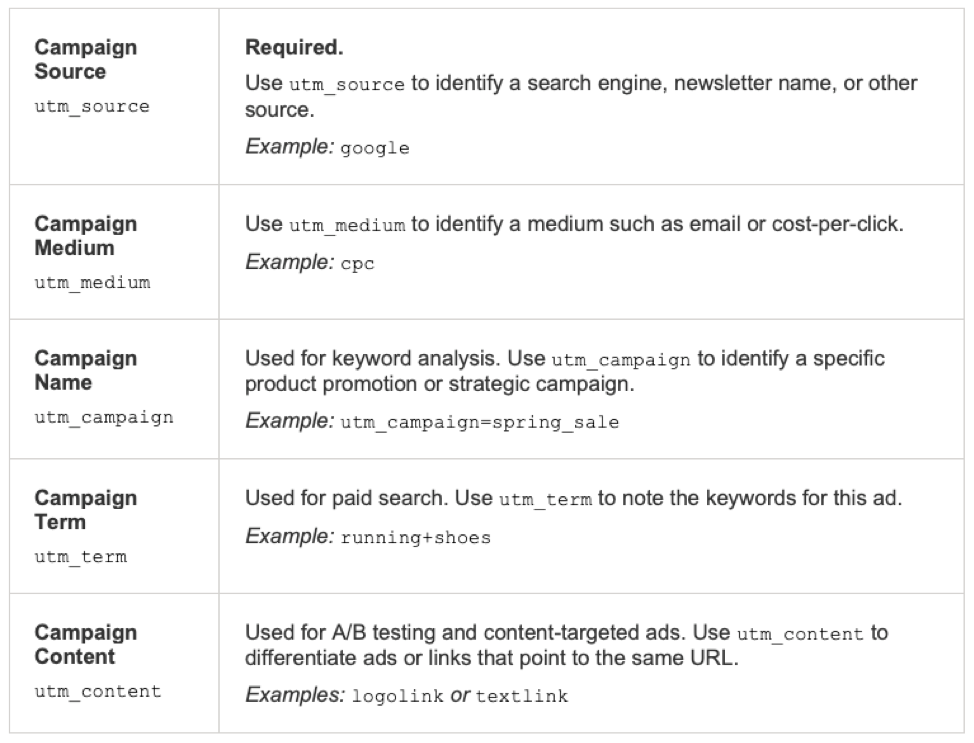The first step in staying organized, keeping marketing processes consistent and focusing on data to drive results is to properly set up a Google Analytics account. It’s critical to start off on the right foot when it comes to tracking how marketing efforts impact website traffic, so you can accurately measure success and make new plans down the line. That’s where naming conventions come in, particularly for UTM parameters like source and medium.
Defining Google Analytics naming conventions comes in handy when you need to keep track of marketing campaigns in Google Analytics. Without them, your campaigns will become disjointed, making it difficult to accurately capture their success and how we’ll they’re adhering to your core strategy.
Google Analytics Naming Conventions: Start With an SOP
When introducing any new process to your team, you should always begin with a standard operating procedure (SOP) based on best practices. That way, all of your team members are on the same page. When people follow a clearly outlined SOP, your Google Analytics naming conventions will actually work.
The SOP should contain all of the instances where you will need to keep track of a digital campaign in Google Analytics. This especially needs to contain the standards for how paid traffic vs. organic social media should be labeled and tracked to give your team the clearest data possible.
Using the URL Builder Tool for UTM codes
We recommend using Google Analytics’ Campaign URL Builder to create UTMs and avoid human error. This tool will do half of the work of making sure your URL follows the proper syntax and that the information you enter will match up to the correct final destination in GA.
Create a repository/library of past tracking links. This will help you to continue the naming convention standards you have set and to easily add additional assets to past campaigns.
Here’s what the UTM builder tool will ask for:
Two quick things about this chart:
- Always include the higher-level points “Source,” “Medium” and “Name” in the UTM. Display campaigns use the “Content” variable while search campaigns use “Term.”
- It is crucial to follow the same naming convention even down to title case and the spaces that are used. A campaign with the name “Spring_Campaign_1” will be tracked separately from “spring-campaign-1”
What Are the Benefits of Better Google Analytics Naming Conventions
While defining a naming convention may seem like tedious work at the beginning, it will reap these three benefits in the long-run:
Benefit #1: Consistency
The biggest benefit of using a clear framework is data consistency. No longer will campaigns be tracked in two separate groupings because someone mixed up the casing of a campaign name. It’s easier for you to analyze data later if it is named the same way in every instance.
Benefit #2: Convenience
You’re likely going to continue to add new tracking throughout the lifetime of your product. Having a standard naming convention means that each time an additional search ad or social post is created, adding UTMs will be simple and tracked in the same campaign in Google Analytics.
Benefit #3: Clarity
With organized and easy to find data, your team can easily run ongoing analyses. Teammates won’t have to ask whoever implemented the tracking what’s going on and where to find it. They can simply dive right in.
Ready, Set, Track!
Hopefully with this background, you can now hit the ground running with your SOP on Google Analytics naming conventions. The specific naming conventions you define are up to you and what works for your organization. (And it’s not just about UTMs, either. Don’t forget your events, goals and other key GA elements.) So long as your team is on the same page with these standards and how to use them, you will be more organized and efficient with your tracking activities.
Need help setting up and tracking your digital campaigns? That’s what we do. We’d love to chat about your unique needs, give you some advice and help turn your marketing efforts into revenue. Contact us online or call 610-421-8601 x122 to learn more.





